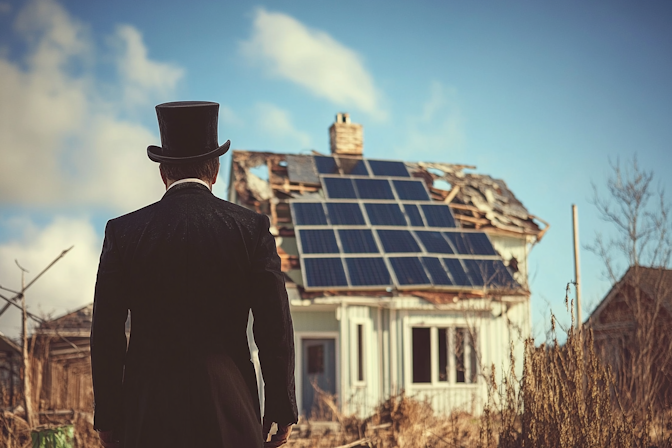Share

In a victory for consumers, a Kneupper and Covey client has won a $34,895 award in arbitration—as well as cancellation of a $61,000 solar power loan on their house. The consumer was a victim of Pink Energy, a.k.a. Power Home Solar, a company that went bankrupt and left its customers holding the bag.
But Kneupper & Covey has aggressively pursued legal claims against the lenders that worked with Pink Energy, and who keep trying to collect the loans even when their customer didn’t get what they paid for.
The firm’s attorneys cancelled more than $1 million in solar panel loans in 2024, and hope to win even more cancellations for solar fraud victims in 2025.
Attorney Jarrett Faber won the arbitration award on behalf of the client. “The client was told their electric bill would be eliminated if they bought the panels,” said Mr. Faber. “But we proved that wasn’t what happened. Instead, their electric bill stayed the same—and the client was just paying an extra bill every month to Tech CU for the solar panels.”
Tech CU, also known as Technology Credit Union, was the defendant. They tried to put the blame on the client for not reading disclaimers in the contract, but the arbitrator wasn’t having it. As the arbitration award stated:
“It is precisely Mr. Bruney’s sales tactic to verbalize the improbable, if not impossible, and leave Claimant to ‘fact check’ his misrepresentations against disclaimers and unexplained production projections buried in the contracts to ultimately discover the reality that solar system being sold to him was incapable of performing as represented that makes his statements fraudulent, misleading and deceptive.”
The arbitrator further found that the solar panels had caused roof damage to the clients’ house:
“Moreover, there was ample evidence presented to establish that beginning within the first month of Pink Energy’s installation when the Taylors experienced a related roof leak and internal damage and continuing over the past four years, the Taylors experienced recurring problems with operation of the system and the system has produced less than half of the solar energy represented in the Pink Energy contract.”
While the solar financing company tried to win the case by claiming they weren’t the one who installed it, that didn’t work—and usually doesn’t.
“What these banks don’t get is that when you give someone a loan, that person is your customer,” said Kevin Kneupper, co-founder of Kneupper & Covey. “And you have to treat your customers right. You don’t need to be a lawyer to know that you can’t charge a customer for something you didn’t deliver. You can’t ruin someone’s roof and then send them a bill for it. They partner with these solar companies, and they profit from the loans—and the law says they have liability here.”
The arbitrator held that Tech CU was liable under something called the FTC Holder Rule. That’s a federal law that says that whoever owns the loan has liability for issues with the product the loan was for, even if they weren’t the one directly selling it.
“It’s a law that makes sense,” said Mr. Kneupper. “It’s been around for fifty years, so it shouldn’t surprise any loan company. The whole reason it’s there in the first place is because of fly-by-night companies going bankrupt. So the federal government said the lenders should know better than to lend money in those cases. If you’ve got a bank, and you’ve got a random person, who’s better able to investigate the company they’re both dealing with? The bank is. So the law says that if someone is going to take a loss from a fly-by-night operator, it should be the lender, not the consumer.”
The firm keeps winning more and more arbitration awards against lenders who made risky partnerships with shady solar companies. The lenders charged hefty fees for themselves in the process. Kneupper & Covey believes they should own up to their duties and stop trying to charge their customers for shoddy products that didn’t live up to what victims were promised.


